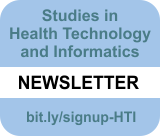 loading subjects...
loading subjects...

In an era increasingly focused on integrating Artificial Intelligence (AI) into healthcare, the utility and user satisfaction of AI applications like ChatGPT have become pivotal research areas. This study, conducted in Greece, engaged 193 doctors from various medical departments who interacted with ChatGPT 4.0 through a custom web application. The participants, representing a diverse range of medical specialties, received responses from the specific chatbot tailored to their specific departmental inquiries. Their satisfaction was gauged using a validated form featuring a 1-to-5 rating scale. The results highlighted a possible correlation between the doctors’ medical departments and their satisfaction levels with ChatGPT 4.0. Significantly, doctors from certain departments (like General Surgery and Cardiology) reported lower satisfaction scores, ranging from 2.73 to 2.80 out of 5, in contrast to their colleagues from departments like Biopathology and Orthopedics, who scored between 4.00 and 4.46 out of 5. This variation in satisfaction levels underscores the diverse needs within different medical specialties and illuminates both the potential of ChatGPT and the areas needing improvement, especially in delivering department-specific medical information. Despite its limitations, ChatGPT version 4.0 is emerging as a valuable tool in the medical community, indicating potential future advancements and more extensive integration into healthcare practices. The study’s findings are crucial in understanding the distinct preferences and requirements of healthcare professionals across various medical departments, thereby guiding the future development of AI tools in healthcare.




